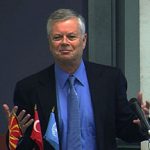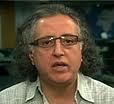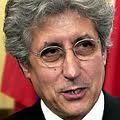Iranian Studies 6-Pack
Includes:
The Iran Deal
The self-styled deal maker is a deal-breaker when it comes to the historic agreement limiting Iranian uranium enrichment in return for the lifting of sanctions. Trump refused to certify Iranian compliance and passed the ball to Congress which now must decide. But the UN monitoring agency has determined that Tehran is adhering to the conditions agreed to. Does the U.S. have evidence indicating otherwise? Why is Trump now abrogating the deal and insulting Iran as “a rogue state.” Iran, once in Washington’s hip pocket under the Shah, broke away with its 1979 Islamic Revolution. The U.S. has been hostile ever since. If the deal collapses why would any country, say North Korea, enter into an agreement with Washington? It changes what has been negotiated post-facto. In this case, the old saw applies, If it ain’t broke, don’t fix it. Interview by David Barsamian. Recorded at the University of Denver.
Iran: History & Politics
Iran, a country of 80 million people, strategically straddles West and South Asia. Iran dramatically left the U.S. orbit in 1979 when the Shah was overthrown and the Islamic Republic was established. The “loss” of Iran was a major blow to Washington’s policy of dominating the Middle East and controlling its oil. Pretty much, ever since, the countries have been at loggerheads. The nuclear deal of 2015 was a breakthrough. However, there is a new sheriff in town and the rhetoric coming from the White House is belligerent. The President has tweeted, “Iran is playing with fire. They don't appreciate how 'kind' President Obama was to them. Not me!" Calling Iran, “the number one terror state,” he put it on the travel ban list. What’s going on inside Iran is largely unknown. Most media reports omit context and background. Interview by David Barsamian. Recorded at the University of Denver.
Iran: The 1953 American Coup
Regime change started decades ago. The new term is just a change of clothes. Dwight Eisenhower was president when the U.S. overthrew the popular democratic government of Mohammad Mossadegh in Iran in 1953. What was Mossadegh's transgression? He wanted Iran's oil to benefit the Iranian people. The coup brought the shah back from exile and put him on the Peacock Throne. What ensued was 25 years of tyranny and repression culminating in Ayatollah Khomeini's Islamic Revolution. The coup in Iran was a pivotal event of the 20th century. Virtually all Iranians know about it. Yet most Americans haven't even heard of it. The U.S. professes that it supports democracy in the Middle East yet when there was a democratic government in Iran the U.S. destroyed it.
Recorded at the Pacific Asia Museum.
Iran: Coups, Sanctions & the Threat of War
Operation Ajax was the code name for the CIA coup which destroyed democracy in Iran. In 1953, 60 years ago, the U.S. overthrew a populist government and put the Shah in power. Actions have consequences. The Shah was overthrown in 1979. Today, the U.S. and its allies have imposed severe sanctions on Iran. Military action is possible. “All options are on the table,” is ritually intoned. Iran is enriching uranium, as is its right as a signatory to the Non-Proliferation Treaty. Washington accuses Tehran of seeking technology to build nuclear weapons. Iran denies those charges and has called for a nuclear weapons-free zone in the Middle East. The U.S. regularly violates Iranian airspace with surveillance flights and its warships conduct what are called routine exercises off of Iran’s coast. Imagine if the reverse were true. Think there might be a response from Washington? Recorded at the University of Denver.
Israel, Iran & the US: Treacherous Alliance
You know the old saw, politics makes strange bedfellows. How about this one? Israel, Iran and the U.S. Yep, hard to believe but true. For many years the three acted in close cooperation. It's a story that's barely known. And for good reason. It is inconvenient. It's like being reminded that the U.S. supported Saddam Hussain during his worse atrocities in the 1980s. Now that Iran is evil incarnate and its leader is compared to Hitler, all kinds of charges are leveled against it. Iran is responsible for the messes in Iraq and Afghanistan. Bush announces, "Iran is a threat to nation's everywhere." Everywhere? Nigeria? Ecuador? New Zealand, too? Iran is the excuse for the U.S. to inject itself even further into the Middle East by building more bases and selling billions of dollars in weaponry.
Gandhi, Nonviolence & Iran
Born in Gujarat in western India in 1869, Gandhi’s life journey was phenomenal by any standard. He went from a suited-booted English trained barrister to the Mahatma, one of the 20th century’s most extraordinary figures. He challenged the mighty British Empire not with guns but with civil disobedience and nonviolence. Today his name is ritually invoked by politicians, particularly in India, but do his ideas really matter? Do they resonate in the 21st century? The U.S. is threatening war on Iran. Any attack will further inflame a region already burning. Instead of military maneuvers, ultimatums, sanctions and bellicose language where can Washington and Tehran find common ground? Can plain Gandhian advice, “Anger and intolerance are the enemies of correct understanding” defuse tensions and lead to dialogue and conflict resolution? What is the role of nonviolence is an increasingly violent world? Interview by David Barsamian. Recorded at the University of Toronto.
Speakers

Trita Parsi
Trita Parsi was president of the National Iranian American Council. He is the co-founder and Executive Vice President of the Quincy Institute. He is the author of Losing an Enemy: Obama, Iran & the Triumph of Diplomacy. He is a contributor to David Barsamian’s Retargeting Iran book.

Laura Secor
Laura Secor has written for The New Yorker, The New York Times Magazine, Foreign Affairs and other publications. She is the author of Children of Paradise: The Struggle for the Soul Iran.

Stephen Kinzer
Stephen Kinzer was a New York Times correspondent and bureau chief in Nicaragua, Germany and Turkey. He teaches at Brown University. He is the author of many books including Overthrow, All the Shah’s Men, The Brothers and Poisoner in Chief: Sydney Gottlieb & the CIA Search for Mind Control.

Christopher de Bellaigue
Christopher de Bellaigue is an independent journalist. His articles appear in the Economist, the Financial Times, the Independent, and the New York Review of Books. He is the author of Rebel Land: Among Turkey’s Forgotten People, The Struggle for Iran, In the Rose Garden of the Martyrs, and Patriot of Persia.

Ramin Jahanbegloo
Ramin Jahanbegloo is an Iranian-Canadian political philosopher. He was arrested and imprisoned by Iranian authorities in 2006. He was released after much international pressure. He is professor and Noor-York Chair in Islamic Studies at York University. He is the author of The Clash of Intolerances, Democracy in Iran and The Gandhian Moment.







Reviews
There are no reviews yet.